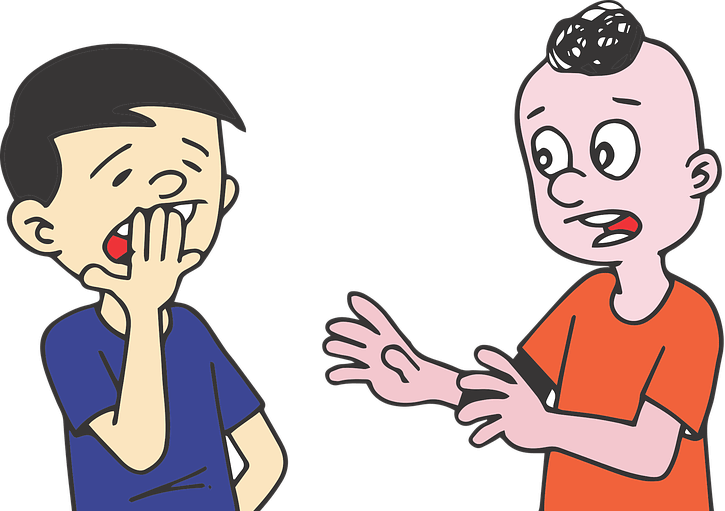Unknowingly opening the mouth and taking a deep prolonged breath in and a short breath out, may not amount to much in our daily life and that is what yawning actually is. It is rather a harmless habit unless you yawn at the time of having a formal dinner, where you have invited your boss to your home. Then this innocuous act may spell some nasty repercussion for you. Considering the fact that a normal person yawns anywhere between 5 to 15 times per day (with increased frequency seen during waking up and just before sleeping), maybe it is would be prudent to know why do we yawn so much?
Many times, during our work schedule or in other important engagement, we have asked ourselves - why do we yawn when we are sleepy or drowsy? Or even why do we yawn when not tired? These questions have perplexed scientists attempting to understand human physiology, since a very long time and honestly speaking, quite a few of these questions are still unanswered.

People yawn when they are tired, bored, going to sleep, waking up from sleep, anxious and waiting to start a new activity (and are under stress), or even when they see some other person yawning. It is obvious that when yawning occurs in so many different situations, then finding out a singular mechanism to explain, why do we yawn, is certainly difficult. However, when scientists first started researching the cause of yawning, their first hypothesis was that yawning occurs, because of the decrease of oxygen (and increased carbon dioxide) levels in the blood.
In the case of oxygen deprivation, it was believed yawning would help in the intake of a large amount of air, which in turn would increase oxygen levels in the blood. Unfortunately experiment done to prove this fact showed that, yawning has no primary respiratory function and yawning and breathing are controlled differently. So increasing oxygen supply or reducing carbon dioxide does not suppress yawning in any way.
Some experts have given the theory that yawning may help in the arousal mechanism. Now we all know that yawning is commonly seen when we are tired. Yawning in these situations are commonly associated with various stretching movements of the body (in the neck, back, shoulders, and arms), which may help the person to be more aware of his surroundings and these actions attempt to keep the drowsiness at bay. Blood flow to face and brain is forced to increase by the action, and alertness is also increased. This may be the most plausible response to the question, why do we yawn and stretch?

Another different group of researchers has come up with the view that yawning helps in cooling the brain, and thus serves a thermoregulatory function. The act of taking a deep breath, causes cool air to pass into the respiratory system, which again cools the blood going to the brain. However, in-depth research has shown that although increased yawning can occur in the situation of increased body and brain temperature, there was no evidence that it can lead to body cooling.
The cause of yawning has also been explained by the role of chemical neurotransmitters in the brain. According to this theory, chemicals like – dopamine, serotonin, nitric oxide, and glutamic acid, which play an important role in controlling mood, emotions and even hunger; are also responsible for yawning. On the opposite side of the spectrum – endorphins, which are opioid neurotransmitters, decreases the chances of yawning.
Another question that is asked quite frequently is - Why do we yawn when others yawn? Whenever one person yawns, it very quickly spreads to other people, who are present close by. Although detailed description for the above is lacking, we do certainly know that this is related to the direct empathy level of a person concerned.
The more empathetic a person is the more chances of his yawning on seeing others yawn. The chance of contagious yawning increased, as emotional closeness between the individuals increased. So, the tendency to yawn is more when the other person is a family or a friend when compared to total strangers. Even dogs (chimpanzees & cats too) have been noted to yawn if they find their owners yawning.

On the other end of the spectrum, children with autism spectrum disorder (where empathetic abilities are impaired) and people with neurological and psychiatric disorders (like schizophrenia), have much less tendency of contagious yawning, as they have impaired ability to empathize with other people’s conditions. This has also led to the view that the increase in yawning may be associated with improvement in schizophrenia.
Before we go into the details of causes of excessive yawning, it is important to know - what is excessive yawning? Well, excessive yawning is the yawning that commonly occurs in more than once a minute frequency. Mostly we believe that excessive yawning occurs when we are bored, tired or sleepy. Although that is true in the vast majority of cases, sometimes it may be a symptom of underlying health problem, which may require further investigations.
As mentioned previously, Yawning occurs in many cases, as an important indicator of some other underlying pathological health disorder. Some of these are –
Yawning is rather a harmless activity in most situations of daily life, especially when you are alone. However, if you are in a formal company, unexpected and untimely yawn can certainly be considered rude. A meeting with your boss would be a good case in point. In such a situation, knowing a few maneuvers regarding how to stop yawning, would certainly be useful. Some of these, which can help in normal yawning (without any underlying pathology or health disorder) are -
1) Deep Breathing Exercises – In case you want to stop yawning at an uncomfortable situation, taking a deep breath through the nose would be certainly helpful. Breathing through the nose cools the blood vessels in the nasal cavity, which in turn sends cold blood to the brain, thereby decreasing the possibility of yawning. However, mouth breathers do not show a similar advantage.

2) Mobility – Tiredness, stress, and boredom can certainly increase the chances of yawning more than normal. In these cases, a change of monotonous routine by simple activity like moving around can also be sometimes useful.
3) Cool Environment – As mentioned previously, cold temperature & environment has been found to decrease the chances of yawning. This can be done in quite a few different ways. Drinking a cold drink is one of the easiest and most tasty ways to do it. Cold foods or snacks from the refrigerator is also quite handy. An airconditioned cold room would always be preferable, in this situation. If this is not available then holding a cold compress against the head for a couple of minutes before the start of an important meeting can certainly, ensure that you do not face any embarrassing moments later on.
Most of the time Yawning is a normal reflex action, that just shows that a person may be tired or sleepy. The only hazard that an ordinary person may face due to yawning is being labeled rude or insensitive, during important occasions, where yawning may be seen as disrespectful. However, in certain situations, a deeper introspection is required in cases of frequent yawning, which occurs without any apparent reason.

In these cases, a medical opinion may be really very important. Only an experienced health practitioner can decide if yawning is an innocuous act, or is occurring due to a health problem. A history of the concerned patient (especially sleeping habits), along with symptoms concerned with individual organ systems may be asked for. Investigations, ranging from simple ones like – ECG to more advanced ones like – Electroencephalogram (for measuring the electrical activity of the brain) and MRI scan may be required in a few cases.
If any hidden pathology is detected as being a probable etiology for the yawns, then they should be treated as the first priority. If medications are responsible for producing yawning then, they should be never stopped or altered before taking a doctor’s advice. Quite often improving sleep cycles (with or without medications) can help if yawning is due to sleep problem. So most often yawning is nothing to be scared of, but if you think it is necessary, it is always better to ask for an expert medical opinion.